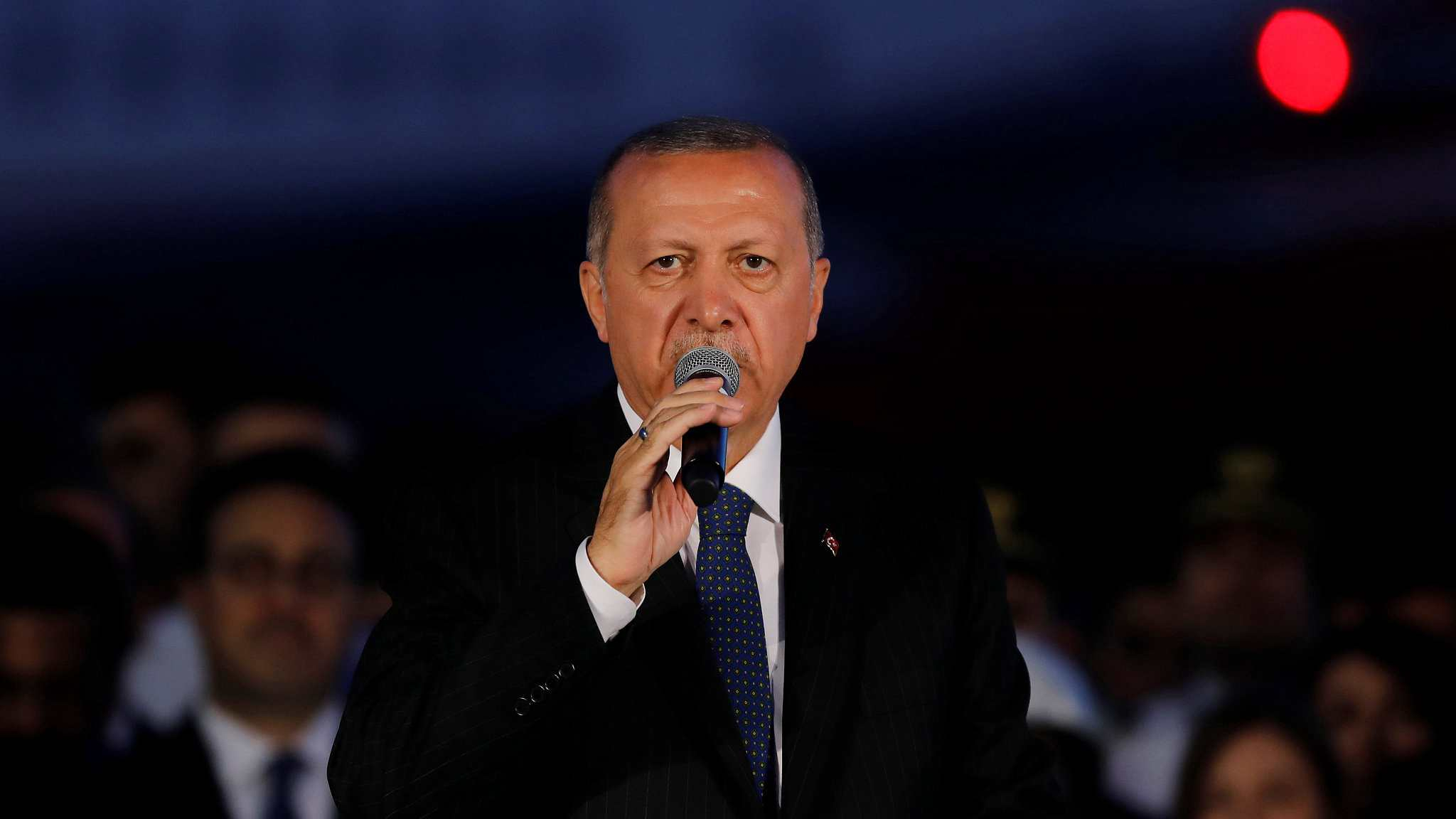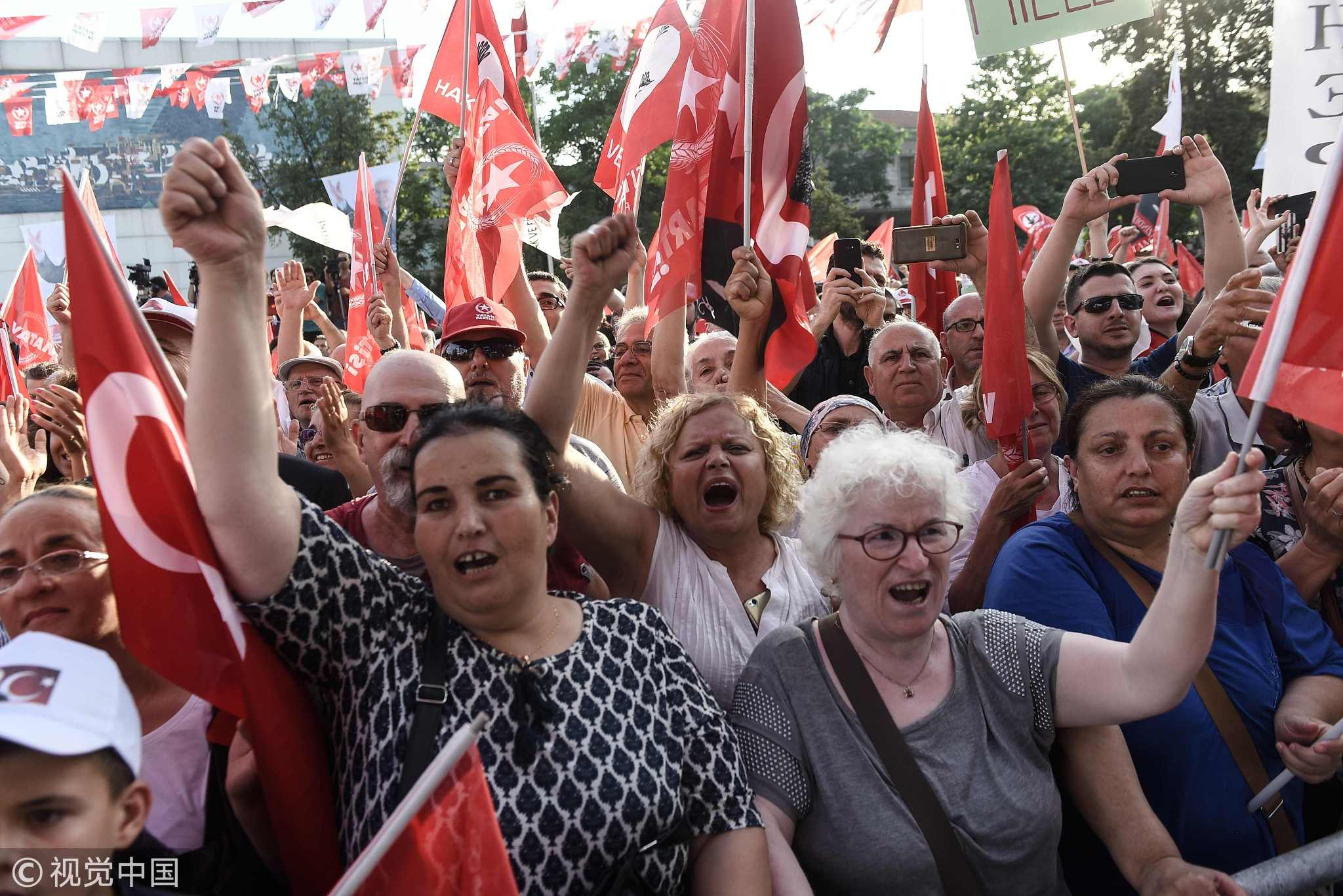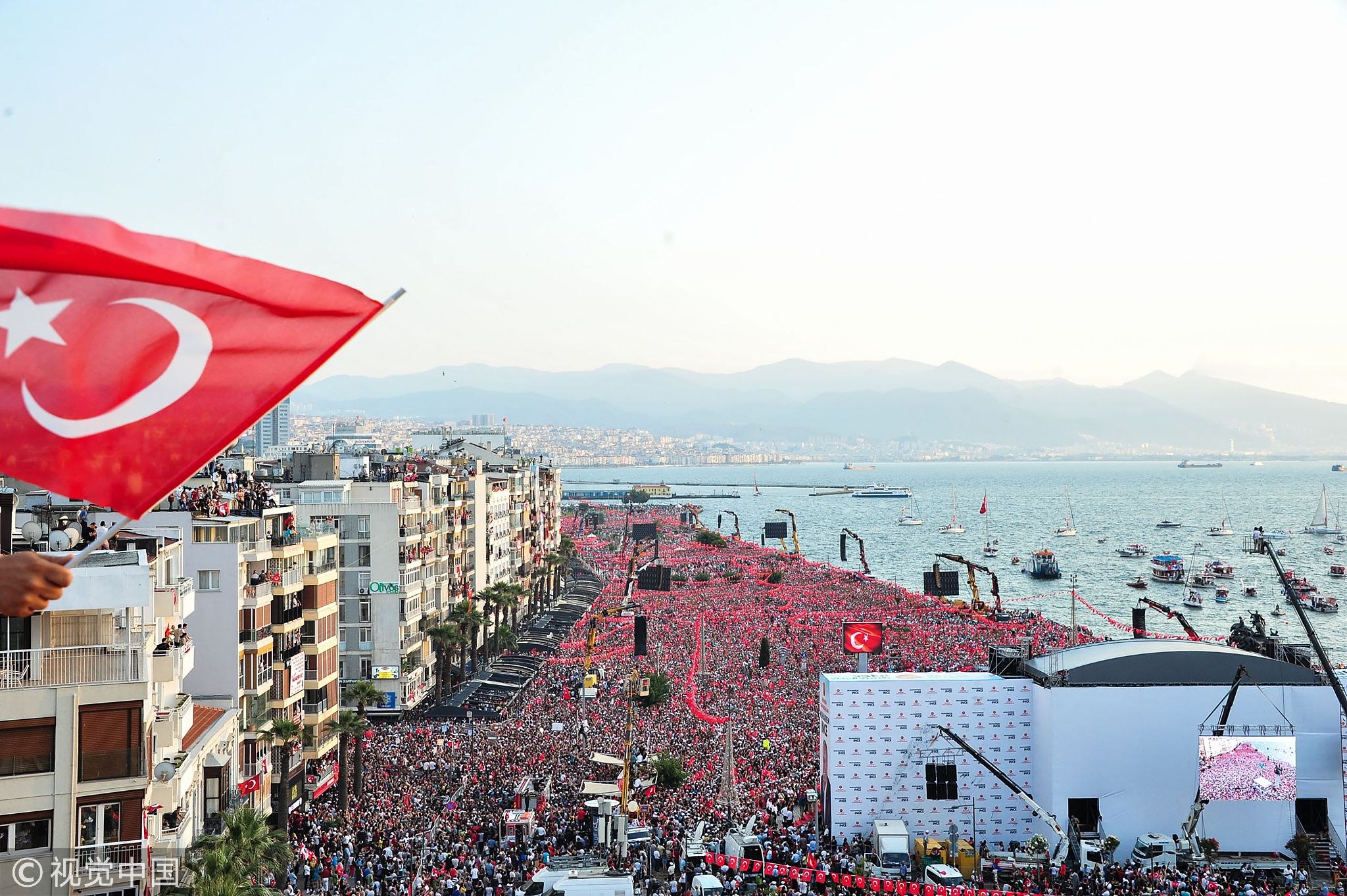
Opinions
12:04, 22-Jun-2018
Opinion: The most contested elections in Turkey
Bilal Çıplak and Emel Topçu

Editor's note: Bilal Ciplak is an assistant professor and Emel Topcu is an associate professor at Hasan Kalyoncu University, Department of Politics and International Relations in Gaziantep, Turkey. The article reflects the author's opinion, and not necessarily the views of CGTN.
Mr. Erdogan has transformed Turkey into an emerging economy and a vital regional power. At the same time, he changed the political system of Turkey from parliamentarian to a full Turkish-style presidential system. The logic behind this change was to create a stronger executive that could make decisions that concern Turkey’s strategic interests easier. However Turkey is also in a region where conflicts abound. Therefore, the coming elections are crucial in that it will test whether people approve the new political system, the state of the Turkish economy, and Mr. Erdogan’s proactive foreign policy.
The Middle East

Supporters of the left-wing nationalist Patriotic ("Vatan" in Turkish) Party take part in an election rally in Istanbul, Jun 21, 2018. /VCG Photo
Supporters of the left-wing nationalist Patriotic ("Vatan" in Turkish) Party take part in an election rally in Istanbul, Jun 21, 2018. /VCG Photo
Middle East issues have been a matter of survival and territorial integrity for Turkey. Turkey had seen itself as a rather European country for a long period of time. Nevertheless, since 2002, when the AKP came to power, Turkey’s concern for the region has grown larger. Turkey shares a common identity, history and geography with the region, and Turkey has had crucial security and economic interests there. The AK Party perceives Turkey as a regional power, and this perceived power status suggests that Turkey should give an order to the region where a strong platform for cooperation in the areas of trade and security could be established. In Mr. Erdogan’s perspective, from such a relationship all involved partners would benefit. The "Shamgen" agreement where Turkey, Syria, Lebanon and Jordan came together to create a visa free economic area, similar to the "Shangen" region of Europe, was a good reflection of Turkey’s ambitions towards the Middle East.
Nevertheless, like many other countries, the Arab Spring caught Turkey unprepared. The emerging problems, such as terrorism under the cover of religion and ethnicity, rebels, refugees, territorial divisions in countries, such as Libya, Iraq and Syria, and ethnic and sectarian conflicts, all engulfed Turkey in the problematic geopolitics of the Middle East. To the point that either Turkey would try its best to eliminate the security problems emerging in this new environment or Turkey would have to witness its demise helplessly. Therefore, a strong government that has executive power with a legislative majority will be able to take bolder decisions concerning Turkey’s future.
The West
Turkey has been a substantial ally for NATO and the EU for such a long time. Unfortunately, the level of support that Western countries provide to groups that Turkey recognizes as terrorist organizations such as the PKK, PYD, and FETO has reduced the level of confidence Turkey has in its Western allies. Therefore, Turkey has been surging for partnership with other major/non-Western countries.
China
China is a country that Turkey cannot and should not underestimate in this regard. Turkey’s relations with China rapidly developed in the last 10 years after signing a joint communique in 2000. The agreements signed between Ankara and Beijing lifted the relationship to the level of “strategic cooperation” which lead to their first joint military exercises in Turkey.
Mr. Erdogan’s motto in the UN, that “the world is greater than five," underlining the necessity of including more countries that have a say in the international arena is in line with Turkey's policy of aligning with the emerging powers. Turkey’s search for alternative alliances also provides the BRIC countries with a crucial chance to become more vocal in tackling the international issues, tailoring the international institutions and the regulations in favor of their own national interests.
Economy
Meanwhile, significant political and economic developments in the world arena, such as Brexit, emerging populism in the US, and the conflict in Syria and Iraq, affect Turkey either in a direct or indirect way. All these developments are felt now strongly in the economic sphere as well.

Thousands of supporters gathered to listen to Muharrem Ince, the leader and presidential candidate of Turkey's main opposition party the Republican People's Party (CHP) as he gives an address during a campaign rally in Izmir, June 21, 2018. /VCG Photo
Thousands of supporters gathered to listen to Muharrem Ince, the leader and presidential candidate of Turkey's main opposition party the Republican People's Party (CHP) as he gives an address during a campaign rally in Izmir, June 21, 2018. /VCG Photo
The greatest success of AKP, in the economy, was to lower the inflation rate, which was traveling in double digits. The biggest challenge in the economy nowadays is again the double-digit rise in inflation. Since 2004, the inflation has reached its highest rate which is around 11.92. So the Turkish lira is rapidly losing its worth against the dollar and the euro, ranking in this year among the worst-performing currencies.
The growing Turkish economy, since 2002, survived even the global economic crisis in 2008 without much trouble. But the July 15 military coup attempt in 2016 was the reason of the Turkish economy facing nearly a standstill. Despite this huge blow there were again good growth figures in 2017 like 7.4 percent in comparison to other economies in the world. Tourism has recovered in 2017 and is estimated to be better in 2018. Exports are on the rise and portfolio investments are continuing. The unemployment rate is also going down. It is now 10.6 and two percent less than in February 2017.
Despite the economic problems, the Turkish people continue to support Mr. Erdogan. Not only most of the Turkish people but also the people of the Middle East view Erdogan as their leader. If he is elected, his increased credibility in the region will give him power to apply his politics with great confidence.

SITEMAP
Copyright © 2018 CGTN. Beijing ICP prepared NO.16065310-3
Copyright © 2018 CGTN. Beijing ICP prepared NO.16065310-3